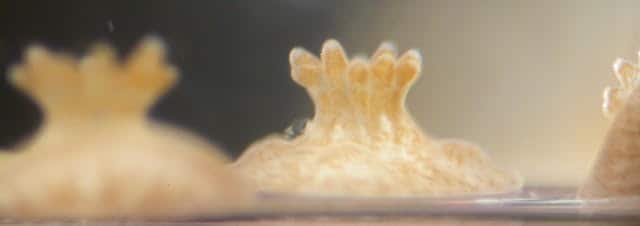In spite of broad atmosphere driven reductions of coral cover on tropical reefs, little consideration has been paid to the likelihood that changes in the realistic geo-distribution of coral recruitment could encourage beneficial reactions to the changing climate through
latitudinal range shifts.
To address this possibility, scientists at the University of Washington found that coral reefs are retreating from equatorial waters and establishing new reefs in more temperate regions.
Lead author Nichole Price, a senior research scientist at Bigelow Laboratory for Ocean Sciences in Maine said, “Climate change seems to be redistributing coral reefs the same way it is shifting many other marine species. The clarity in this trend is stunning, but we don’t yet know whether the new reefs can support the incredible diversity of tropical systems.”
According to scientists, only specific types of coral can achieve these new locations, given how far the microscopic larvae can swim and drift on flows before they come up short on their restricted fat stores. The exact composition of most new reefs is currently obscure because of the cost of collective genetic and species diversity data.
Co-author Jacqueline Padilla-Gamiño, an assistant professor at the University of Washington School of Aquatic and Fishery Sciences, said, “This study is a great example of the importance of collaborating internationally to assess global trends associated with climate change and project future ecological interactions. It also provides a nugget of hope for the resilience and survival of coral reefs.”
Co-author Satoshi Mitarai, an associate professor at Okinawa Institute of Science and Technology Graduate University who earned his doctorate at the UW said, “We see ecosystems transition to new blends of species that have never coexisted, and it’s not yet clear how long it takes for these systems to reach equilibrium. The lines are really starting to blur about what a native species is, and when ecosystems are functioning or falling apart.”
Scientists examined latitudes up to 35 degrees north and south of the equator and found that the extension of coral reefs is superbly reflected on either side. The paper surveys where and when refugee corals could settle in the future — possibly bringing new resources and opportunities, for example, fishing and tourism.
The researchers, an international group from 17 institutions in six countries, compiled a global database of studies dating back to 1974, when record-keeping began. They hope that other scientists will add to the database, making it increasingly comprehensive and useful to different research questions.
Co-author Peter Edmunds, a professor at the University of California Northridge, said, “The results of this paper highlight the importance of truly long-term studies documenting a change in coral reef communities. The trends we identified in this analysis are challenging to detect yet of the greatest importance in understanding how reefs will change in the coming decades. As the coral reef crisis deepens, the international community will need to intensify efforts to combine and synthesize results as we have been able to accomplish with this study.”
Coral reefs are intricately interconnected systems, and it is the interaction between species that empowers their healthy working. It is indistinct which different species, for example, coralline algae that encourage the survival of helpless coral larvae, are additionally venturing into new zones —or how effective youthful corals can be without them. Price needs to examine the connections and a decent variety of species in new reefs to comprehend the elements of these evolving environments.
Price said, “So many questions remain about which species are and are not making it to these new locations, and we don’t yet know the fate of these young corals over longer time frames. The changes we see in coral reef ecosystems are mind-boggling, and we need to work hard to document how these systems work and learn what we can do to save them before it’s too late.”
The study is published July 4 in the journal Marine Ecology Progress Series.

